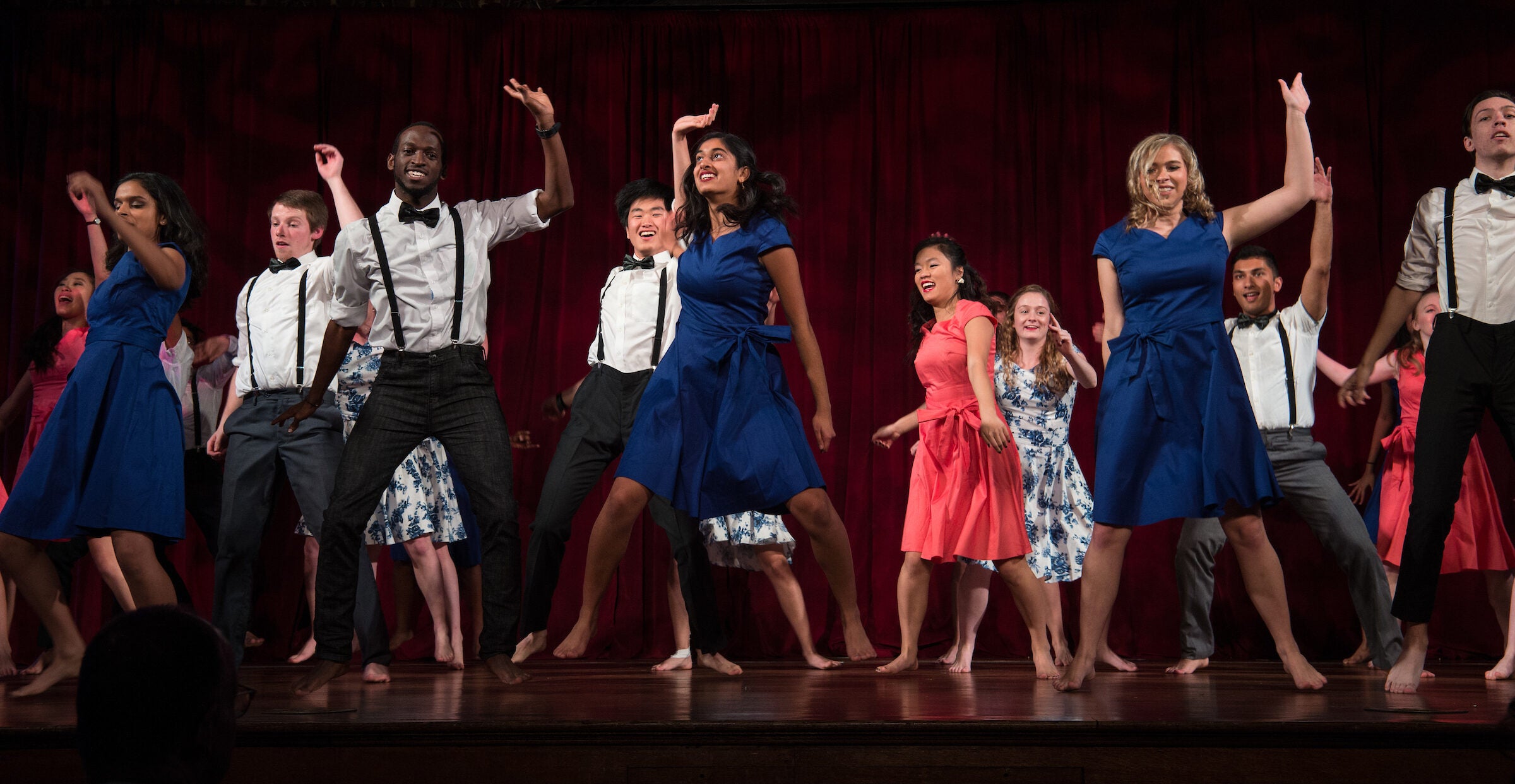
Engaged Humanities Projects Across Campus
Georgetown University houses numerous engaged and interdisciplinary projects, where faculty and students of the humanities showcase their commitment and creativity in service of the public good.
The Projects
Bargaining for the Common Good
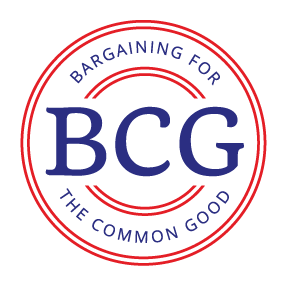 Bargaining for the Common Good is a nationwide network of unions and community groups working together in their localities to advance social, economic, and racial justice through collective bargaining and collective action. The network is made up of unions, community groups, racial justice organizations and student organizations that work together as equal partners to win bigger and broader demands at the bargaining table and in the streets. In these campaigns, labor and community groups work with a broad group of stakeholders acting in their own interest to demand that corporations and the wealthy pay their fair share so that our communities have what they need to prosper. Unions that have the right to bargain use contract fights as an opportunity to organize with community partners around a set of demands that benefit not just the bargaining unit, but also the wider community as a whole. These are campaigns for investing in our communities, not just settling a union contract. Bargaining for the Common Good is an initiative of the Kalmanovitz Initiative for Labor and the Working Poor, the Center for Innovation in Worker Organization at Rutgers University, and Action Center.
Bargaining for the Common Good is a nationwide network of unions and community groups working together in their localities to advance social, economic, and racial justice through collective bargaining and collective action. The network is made up of unions, community groups, racial justice organizations and student organizations that work together as equal partners to win bigger and broader demands at the bargaining table and in the streets. In these campaigns, labor and community groups work with a broad group of stakeholders acting in their own interest to demand that corporations and the wealthy pay their fair share so that our communities have what they need to prosper. Unions that have the right to bargain use contract fights as an opportunity to organize with community partners around a set of demands that benefit not just the bargaining unit, but also the wider community as a whole. These are campaigns for investing in our communities, not just settling a union contract. Bargaining for the Common Good is an initiative of the Kalmanovitz Initiative for Labor and the Working Poor, the Center for Innovation in Worker Organization at Rutgers University, and Action Center.
DC Reads
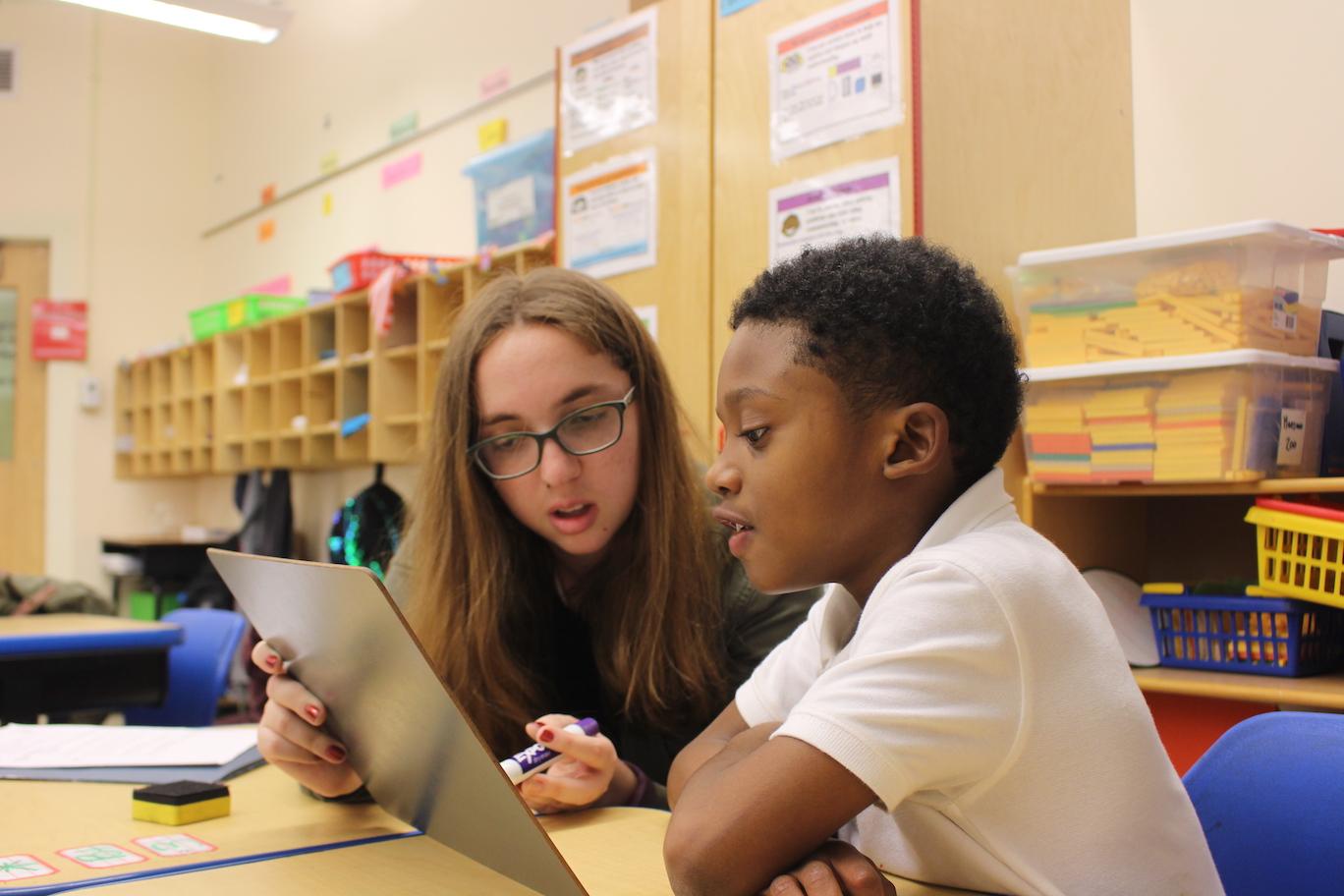 Georgetown DC Reads is a tutoring, mentoring, and advocacy program that serves K-5th grade students who are a grade level or more behind in literacy skills. The program began in 1997 as the University’s response to the passage of the America Reads Act, a literacy initiative established to improve reading proficiency for all elementary students by engaging college students as volunteer and Federal Work Study-funded tutors. A team of student coordinators lead the program through which 100+ Georgetown students a semester have weekly tutoring commitments East of the River in Washington, DC. DC Reads is an EngageDCorps Program of Georgetown’s Center for Social Justice.
Georgetown DC Reads is a tutoring, mentoring, and advocacy program that serves K-5th grade students who are a grade level or more behind in literacy skills. The program began in 1997 as the University’s response to the passage of the America Reads Act, a literacy initiative established to improve reading proficiency for all elementary students by engaging college students as volunteer and Federal Work Study-funded tutors. A team of student coordinators lead the program through which 100+ Georgetown students a semester have weekly tutoring commitments East of the River in Washington, DC. DC Reads is an EngageDCorps Program of Georgetown’s Center for Social Justice.
DC Schools Project
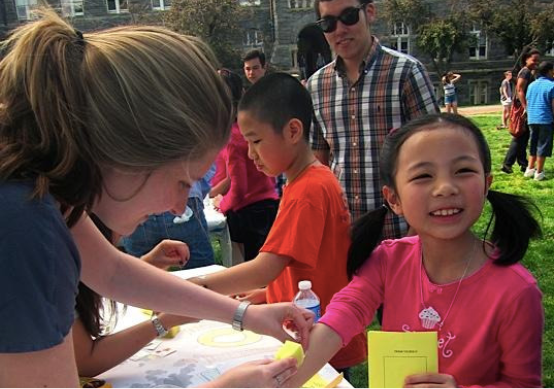
DC Schools Project’s tutors provide English language tutoring and support for youth and adults of immigrant backgrounds in Washington, DC.
DC Schools Project (DCSP) is a tutoring, mentoring, and advocacy program that engages Georgetown students as volunteer and Federal Work Study (FWS)-funded tutors to provide English language tutoring and support for youth and adults of immigrant backgrounds in Washington, DC. The program was established in 1984 in response to the quadrupling of the language minority population in the DC public schools, as a result of the drastic increase in the immigrant population due to the civil war in El Salvador. The program seeks to improve the literacy skills and academic performance to ultimately increase the ability of the youth and adults to fully participate in the cultural, civic, educational, and economic life in US society. Fifteen student coordinators lead DCSP through which approximately 150 Georgetown students a semester have weekly commitments to one of its seven programs. The DC Schools Project is an EngageDCorps Program of Georgetown’s Center for Social Justice.
Doyle Engaging Difference Program
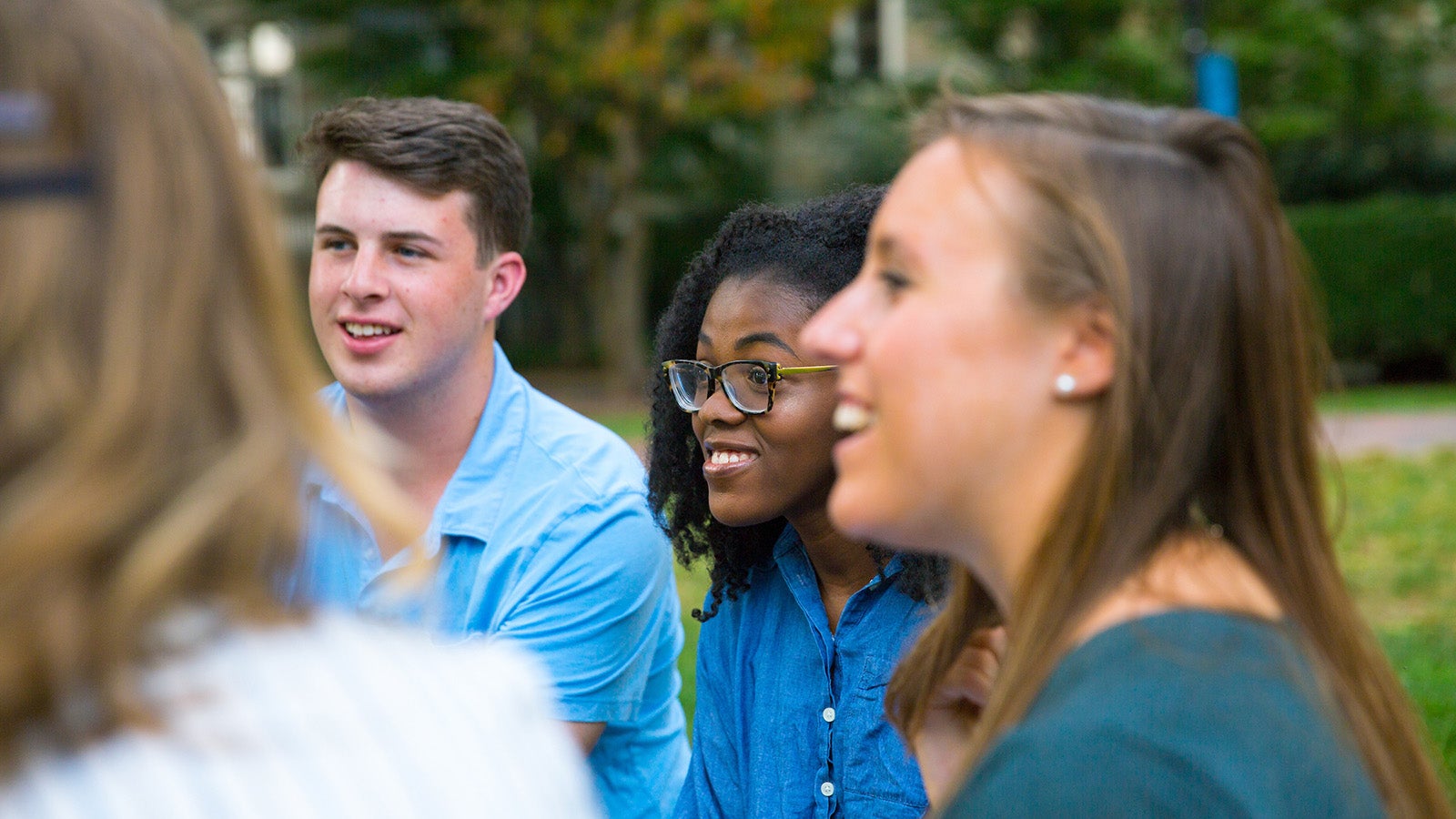 The Doyle Engaging Difference Program supports innovative learning experiences that equip Georgetown University students and faculty to authentically and constructively engage differences inside and outside the classroom. Now in its second decade, the Doyle Program continues to foster space for critical discussion and debate on intercultural and interreligious difference, enabling Hoyas to become engaged global citizens in an increasingly pluralistic world. Co-sponsored by the Center for New Designs in Learning and Scholarship and the Berkley Center for Religion, Peace, and World Affairs.
The Doyle Engaging Difference Program supports innovative learning experiences that equip Georgetown University students and faculty to authentically and constructively engage differences inside and outside the classroom. Now in its second decade, the Doyle Program continues to foster space for critical discussion and debate on intercultural and interreligious difference, enabling Hoyas to become engaged global citizens in an increasingly pluralistic world. Co-sponsored by the Center for New Designs in Learning and Scholarship and the Berkley Center for Religion, Peace, and World Affairs.
Embedded Ethics
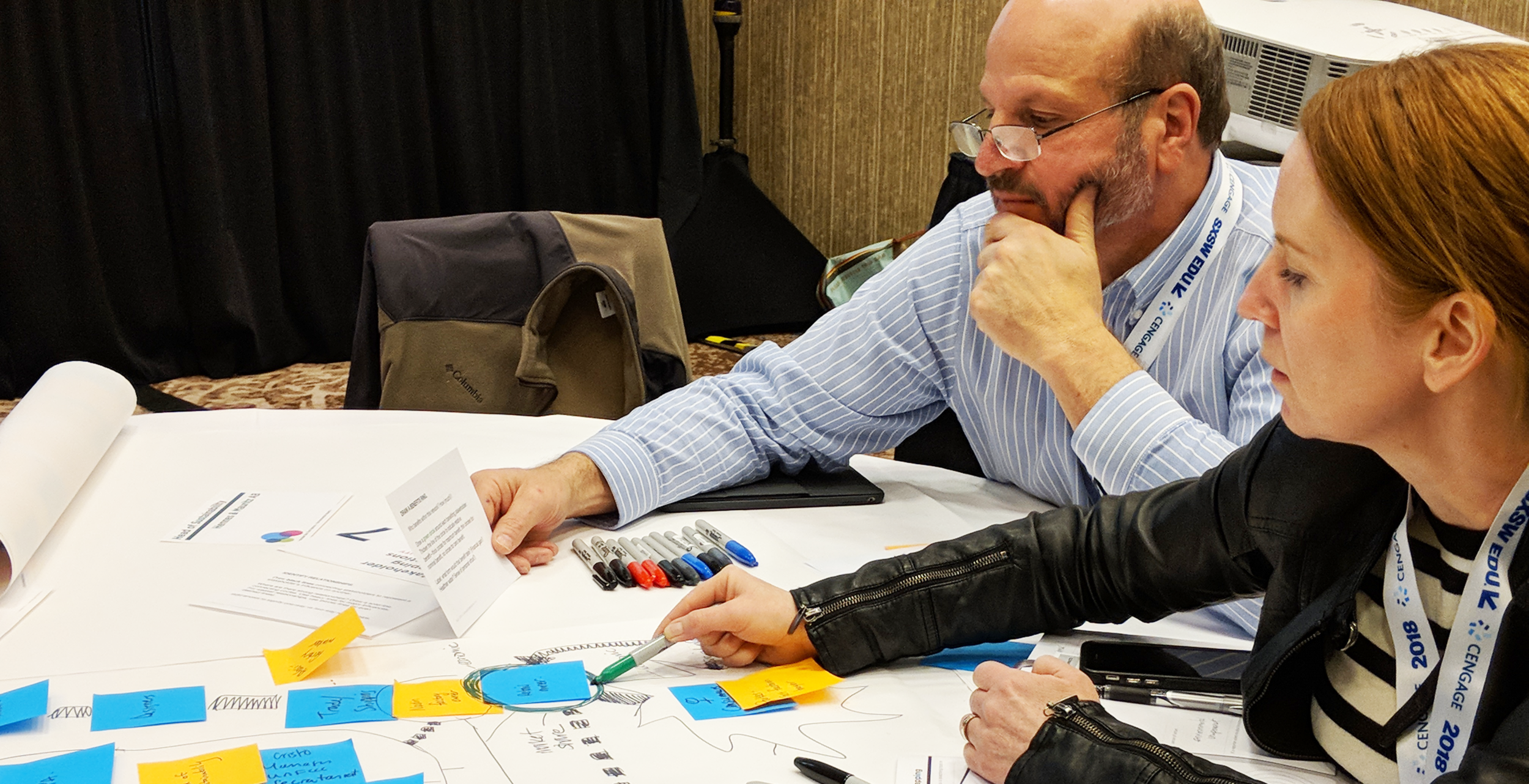 “Embedded Ethics” is a pioneer partnership model that pairs Ethics Lab philosophers and designers with faculty across disciplines to co-design ethical discussions and run customized, creative exercises in their coursework. Students are not only exposed to key ethical concepts and frameworks, but also have the opportunity to debate, apply, and internalize context-specific lessons, in order to develop essential skills and gain a real-world understanding of their potential impact.
“Embedded Ethics” is a pioneer partnership model that pairs Ethics Lab philosophers and designers with faculty across disciplines to co-design ethical discussions and run customized, creative exercises in their coursework. Students are not only exposed to key ethical concepts and frameworks, but also have the opportunity to debate, apply, and internalize context-specific lessons, in order to develop essential skills and gain a real-world understanding of their potential impact.
Ethics Consultation Service
 The Edmund D. Pellegrino Center for Clinical Bioethics, on behalf of the Georgetown University Hospital Ethics Committee, conducts the clinical Ethics Consultation Service to assist staff, patients and families. The core faculty of the Center has training and experience in both patient care and in ethics. They work closely with the whole hospital staff, including the Departments of Pastoral Care and Social Work, and conduct ethics consults from a team approach.
The Edmund D. Pellegrino Center for Clinical Bioethics, on behalf of the Georgetown University Hospital Ethics Committee, conducts the clinical Ethics Consultation Service to assist staff, patients and families. The core faculty of the Center has training and experience in both patient care and in ethics. They work closely with the whole hospital staff, including the Departments of Pastoral Care and Social Work, and conduct ethics consults from a team approach.
Georgetown Conflict Transformation Lab
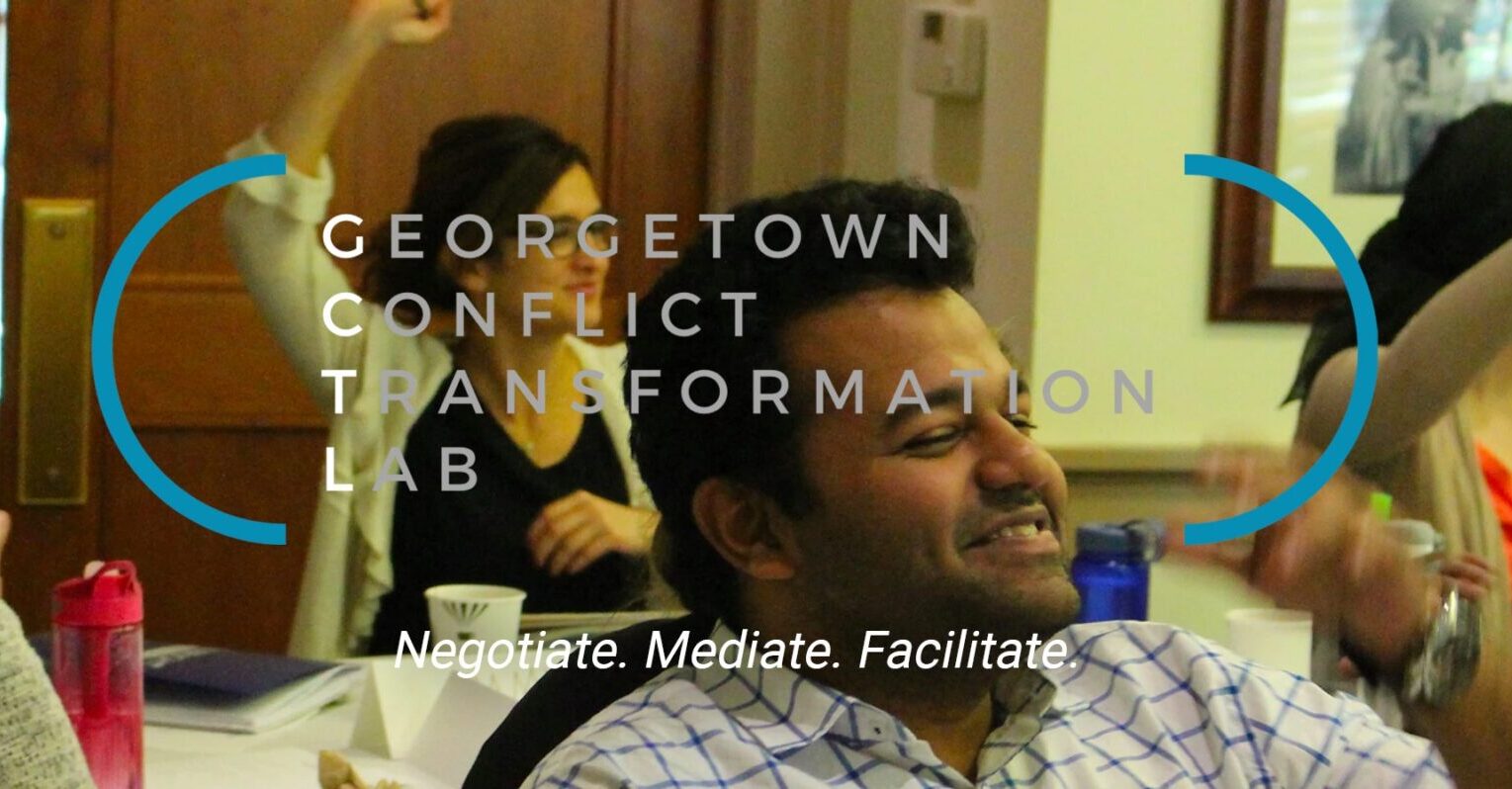 The Conflict Transformation Lab is an interdisciplinary platform for Georgetown University students to develop a diverse skill set in negotiation, mediation, and dialogue and to build relationships with high-level practitioners in the areas of policy, advocacy, business, and diplomacy. Our clinics, interactive dinners, and bridge building initiatives have served students across 14 Georgetown degree programs and cultivate the resilience, self-awareness, and skills needed to navigate leadership challenges.
The Conflict Transformation Lab is an interdisciplinary platform for Georgetown University students to develop a diverse skill set in negotiation, mediation, and dialogue and to build relationships with high-level practitioners in the areas of policy, advocacy, business, and diplomacy. Our clinics, interactive dinners, and bridge building initiatives have served students across 14 Georgetown degree programs and cultivate the resilience, self-awareness, and skills needed to navigate leadership challenges.
Georgetown HyperHistory Hub
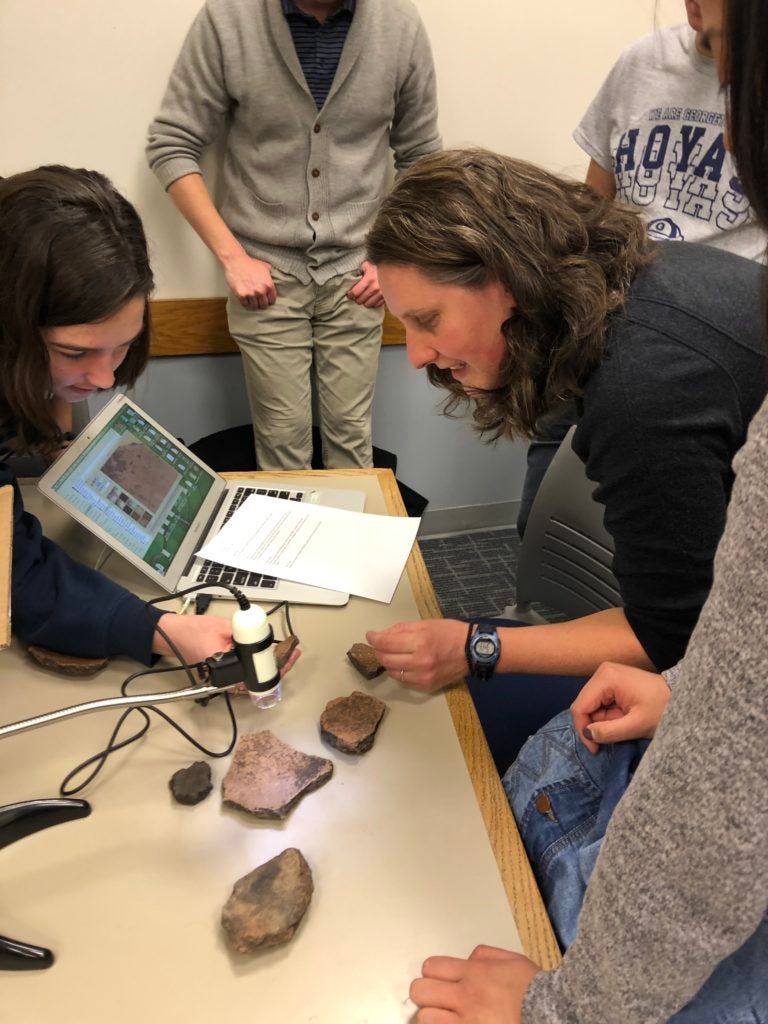 The Georgetown HyperHistory Hub integrates humanistic forms of historical inquiry with social and hard sciences approaches to history. The study of the human past has been a key area of collaboration across the social and natural sciences, but key concerns from the humanities about human agency, historical contingency, and culture are usually left out of such collaborations. Either there is a lack of representation of disciplines like history, art history, archaeology, or folklore studies in ‘hard science’ research on the human past, or such disciplines are involved only after research questions and methods have been determined.
The Georgetown HyperHistory Hub integrates humanistic forms of historical inquiry with social and hard sciences approaches to history. The study of the human past has been a key area of collaboration across the social and natural sciences, but key concerns from the humanities about human agency, historical contingency, and culture are usually left out of such collaborations. Either there is a lack of representation of disciplines like history, art history, archaeology, or folklore studies in ‘hard science’ research on the human past, or such disciplines are involved only after research questions and methods have been determined.
Playing on the multiple meanings of the Greek prefix ‘hyper,’ we see ‘hyperhistory’ as a form of interdisciplinary scholarship ‘over’ or ‘above’ conventional history in its collaboration with the natural and social sciences but also ‘in defense of’ the contribution of humanistic questions and concerns (from art history, history, literary studies, etc…) in our interdisciplinary approaches to the human past. Rather than simply critique other fields for advancing instrumental or determinist interpretations of our shared human past, we create opportunities for cross-training for scientists and humanists alike.
Under the auspices of the Georgetown Humanities Initiative, the HyperHistory Hub will offer two new courses for undergraduate and graduate students as well as interdisciplinary bootcamps for graduate students and faculty interested in the historical sciences. Our goal is to create opportunities for training and research that better integrate the particularities of humanities approaches to the past with those of other non-humanities disciplines.
Georgetown Lombardi Arts & Humanities Program
 The Georgetown Lombardi Arts & Humanities Program promotes cura personalis, or care of the whole person, for MedStar Georgetown University Hospital patients, family members, caregivers, medical staff and visitors through its programs of music, expressive writing, dance and visual arts. These therapeutic art modalities encourage a creative and constructive response to illness. Classes, workshops, bedside visits, exhibitions, environmental enhancements, and educational programs contribute to promoting an optimum life experience for those who encounter and interact with the AHP.
The Georgetown Lombardi Arts & Humanities Program promotes cura personalis, or care of the whole person, for MedStar Georgetown University Hospital patients, family members, caregivers, medical staff and visitors through its programs of music, expressive writing, dance and visual arts. These therapeutic art modalities encourage a creative and constructive response to illness. Classes, workshops, bedside visits, exhibitions, environmental enhancements, and educational programs contribute to promoting an optimum life experience for those who encounter and interact with the AHP.
Georgetown Slavery Archive
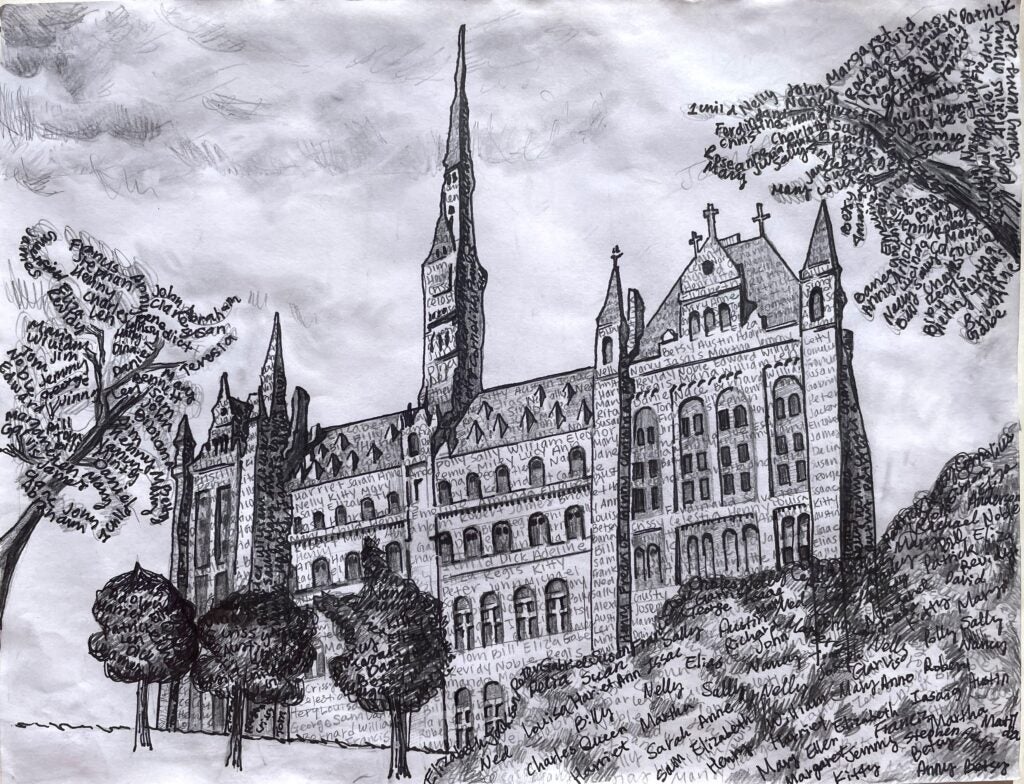
Joy Kang, “Write Their Names,” 2021. This drawing was composed by Joy Kang (GU SFS ’24) in Professor Adam Rothman’s History 099 Facing Georgetown’s History class in the Spring 2021 semester. It features Georgetown’s Healy Hall adorned with the names of the GU272. The trees surrounding Healy Hall are also composed of GU272 names.
The Georgetown Slavery Archive is a repository of materials relating to the Maryland Jesuits, Georgetown University, and slavery. This public, digital archive has reviewed, digitized, and posted more than 400 materials related to Georgetown, the Society of Jesus, and slavery. This project was initiated in February 2016 by the Archives Subgroup of the Georgetown University Working Group on Slavery, Memory, and Reconciliation and is part of Georgetown University’s Slavery, Memory, and Reconciliation initiative. The research is ongoing.
Georgetown University Buddhist and Silk Road Studies Initiative
 The Georgetown University Buddhist and Silk Road Studies Initiative promotes teaching, learning, research, and public engagement on Buddhist traditions and the Silk Road at local, national, and international levels. At Georgetown, we support and enhance teaching and research in Buddhist Studies and the Silk Road at the undergraduate and graduate levels. We engage in community outreach through the Buddhist and Silk Road Studies lecture series and through shared events with our partners and stakeholders.
The Georgetown University Buddhist and Silk Road Studies Initiative promotes teaching, learning, research, and public engagement on Buddhist traditions and the Silk Road at local, national, and international levels. At Georgetown, we support and enhance teaching and research in Buddhist Studies and the Silk Road at the undergraduate and graduate levels. We engage in community outreach through the Buddhist and Silk Road Studies lecture series and through shared events with our partners and stakeholders.
In Your Shoes
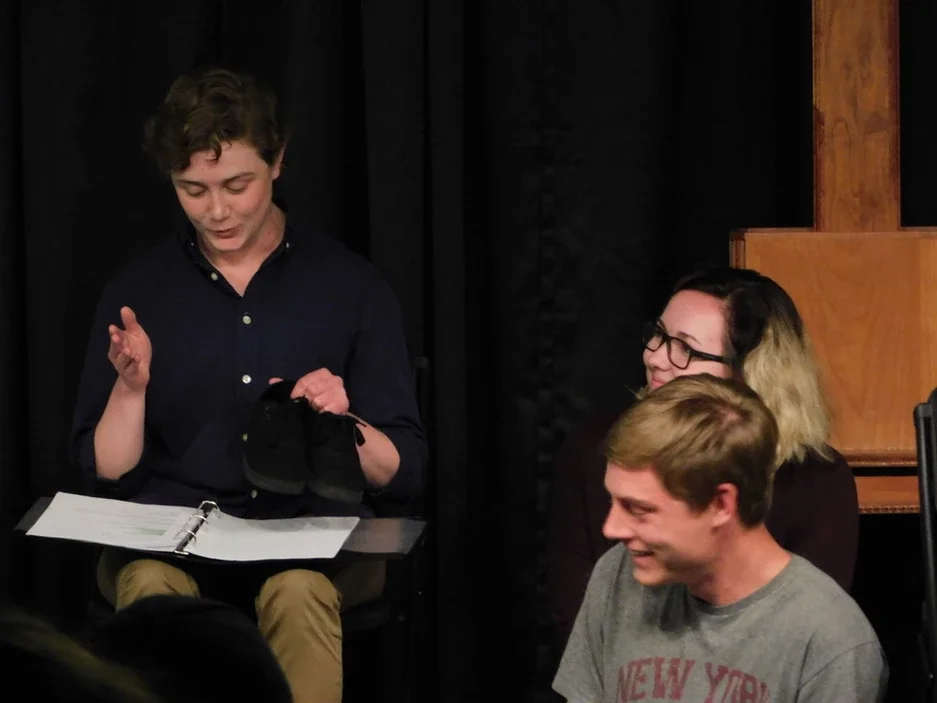
Rehearsal of performance with students from Georgetown University and Patrick Henry College, from the In Your Shoes project.
In Your Shoes is a collaborative project of the Laboratory for Global Performance and Politics, Georgetown University’s Democracy & Governance program, and Patrick Henry College. Our mission is to employ techniques rooted in theatrical performance to bring students of diverse social, cultural, and religious backgrounds into deep, challenging, and mutually respectful dialogue with one another to promote mutual understanding and empathy. Moving beyond the political divide, In Your Shoes shines a deeper light on the hopes, fears, and dreams that animate the daily lives of the students. Using The Lab’s signature “Performing One Another” methodology which has been developed across the world, it suggests wider possibilities for a more profound grasp of what it means to create community and trust in challenging times.
Justice for Janitors
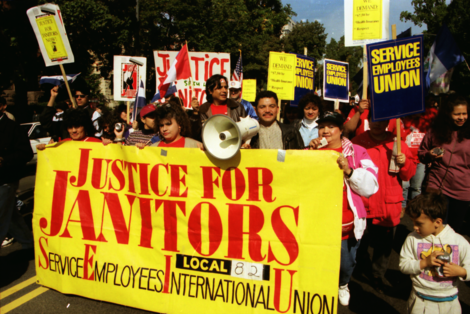
March for Immigrant Rights, 12 October 1996 / Photographer: Rick Reinhard
Justice for Janitors is a digital history project of the Kalmanovitz Initiative for Labor and the Working Poor. Justice for Janitors changed the lives of thousands of people. Since 2010, at Georgetown we’ve been collecting the stories of DC Justice for Janitors—union activists, politicians, employers, community leaders, and janitors themselves. It aims to preserve the history of working people in Washington, D.C., and to make that history accessible to scholars, students, and the general public.
Making an Exoneree
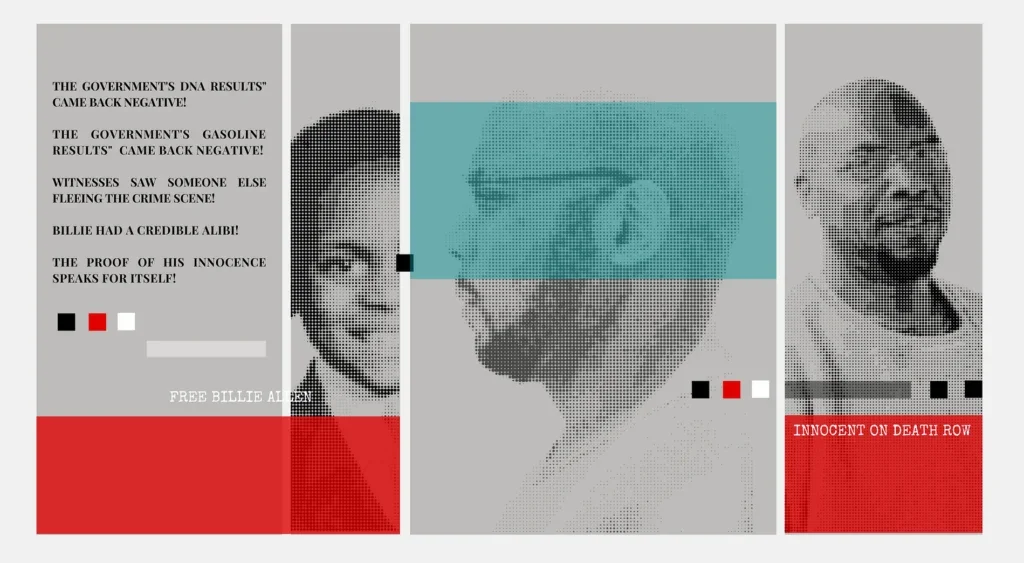
Billie Allen was one of the five potential exonerees whose cases were tackled by the 2022 Spring cohort.
Making an Exoneree is an extraordinary and unprecedented course and program. Every spring semester since 2018, a group of highly motivated Georgetown University undergraduate students has reinvestigated likely wrongful conviction cases, produced short documentaries that suggest innocence, and created social media campaigns calling for exonerations. Prisons and Justice Initiative Director Marc Howard and his childhood friend Marty Tankleff, who was himself wrongfully incarcerated for almost 18 years before his exoneration, teach the “Making an Exoneree” course each spring semester.
Racial Justice Dialogues
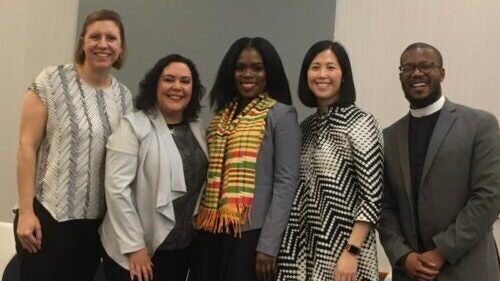
Hoyas Building a Beloved Community: A conversation with Georgetown Leadership.
The Racial Justice Dialogues are a way to bring conversations about racial justice to the forefront of our community members’ minds. The Center for Social Justice facilitates racial justice dialogues for the students, faculty, and staff of Georgetown University. Throughout the academic year, members of the Georgetown community are invited to be a part of these dialogues through which participants explore topics of race, racism, white supremacy, and identity, and learn together.
Remember This: The Lesson of Jan Karski
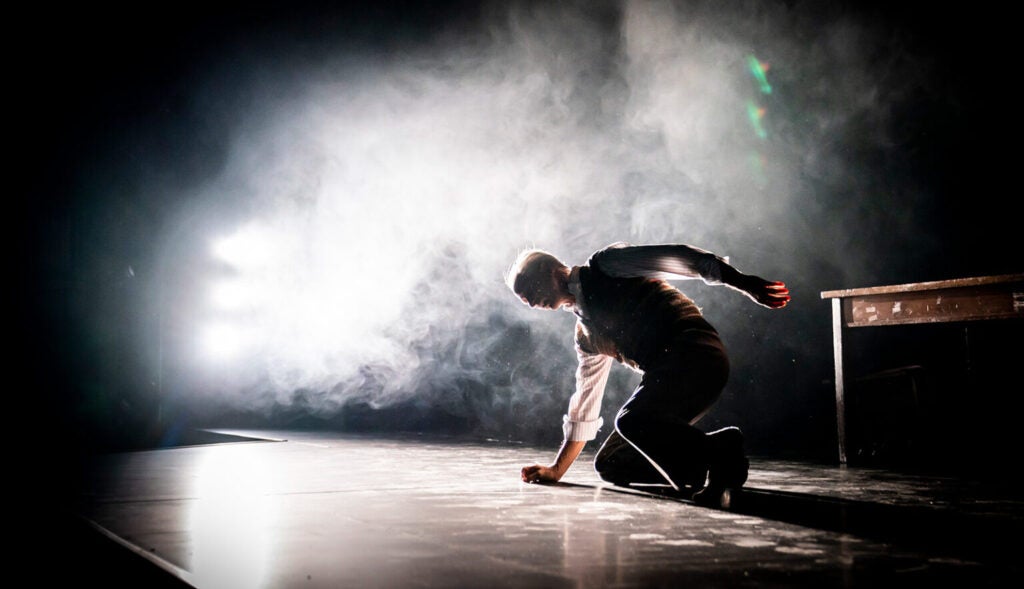
David Strathairn stars in the solo performance of Remember This The Lesson of Jan Karski
Remember This: The Lesson of Jan Karski is a project from The Laboratory for Global Performance and Politics that honors the life of World War II hero, Holocaust witness, and Georgetown University professor Jan Karski. An acclaimed play, written by Clark Young and Derek Goldman and directed by Goldman, Remember This: The Lesson of Jan Karski has also been adapted to film, published as a book, and subject of the Bearing Witness: Jan Karski course.
Remembering YoU
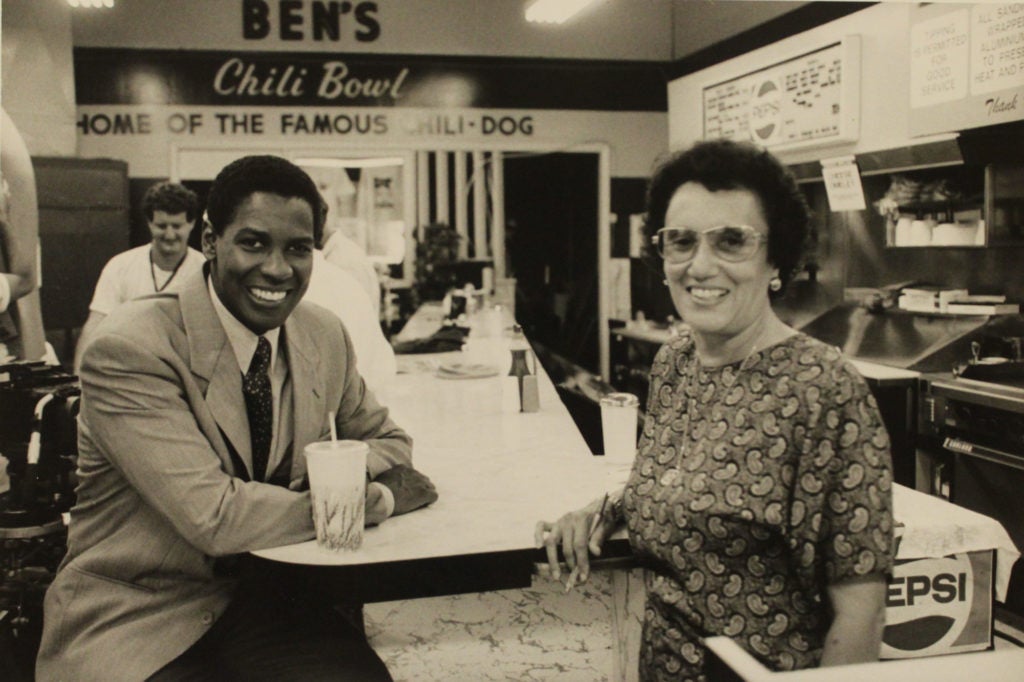
Denzel Washington and Mrs. Ali at Ben’s Chili Bowl
Remembering YoU is a community-driven archival initiative created to preserve U Street’s rich history and empower local residents to retake control of the narratives shaping their histories and neighborhoods. This project is sponsored by the Georgetown University Humanities Initiative and HumanitiesDC. To learn more about the U Street archival initiative, please visit the Project Overview and History page.
The Digital Service Collaborative
 Governments around the world are working to reimagine how they provide services in a digital age; however, most governments are not equipped for this new way of working and are seeking support to do so. The Digital Service Collaborative is an effort to improve interactions of citizens with government services and increase public trust. Initiative of the Beeck Center for Social Impact & Innovation, with support from The Rockefeller Foundation.
Governments around the world are working to reimagine how they provide services in a digital age; however, most governments are not equipped for this new way of working and are seeking support to do so. The Digital Service Collaborative is an effort to improve interactions of citizens with government services and increase public trust. Initiative of the Beeck Center for Social Impact & Innovation, with support from The Rockefeller Foundation.
The Future of the Humanities Project
 The Future of the Humanities Project at Georgetown University brings together scholars across disciplines to discuss critical issues at the intersection of the humanities and public life. The project is a collaboration between the Georgetown University Humanities Initiative and the Las Casas Institute, Blackfriars Hall, Oxford, led by Professor Michael Scott, senior advisor to the president of Georgetown University, a leading Shakespeare scholar, and a fellow at Blackfriars Hall, Oxford. Kathryn Temple, professor of English at Georgetown and founding director of the Master’s Program in Engaged & Public Humanities, is a senior fellow with the project.
The Future of the Humanities Project at Georgetown University brings together scholars across disciplines to discuss critical issues at the intersection of the humanities and public life. The project is a collaboration between the Georgetown University Humanities Initiative and the Las Casas Institute, Blackfriars Hall, Oxford, led by Professor Michael Scott, senior advisor to the president of Georgetown University, a leading Shakespeare scholar, and a fellow at Blackfriars Hall, Oxford. Kathryn Temple, professor of English at Georgetown and founding director of the Master’s Program in Engaged & Public Humanities, is a senior fellow with the project.
The Free Speech Project
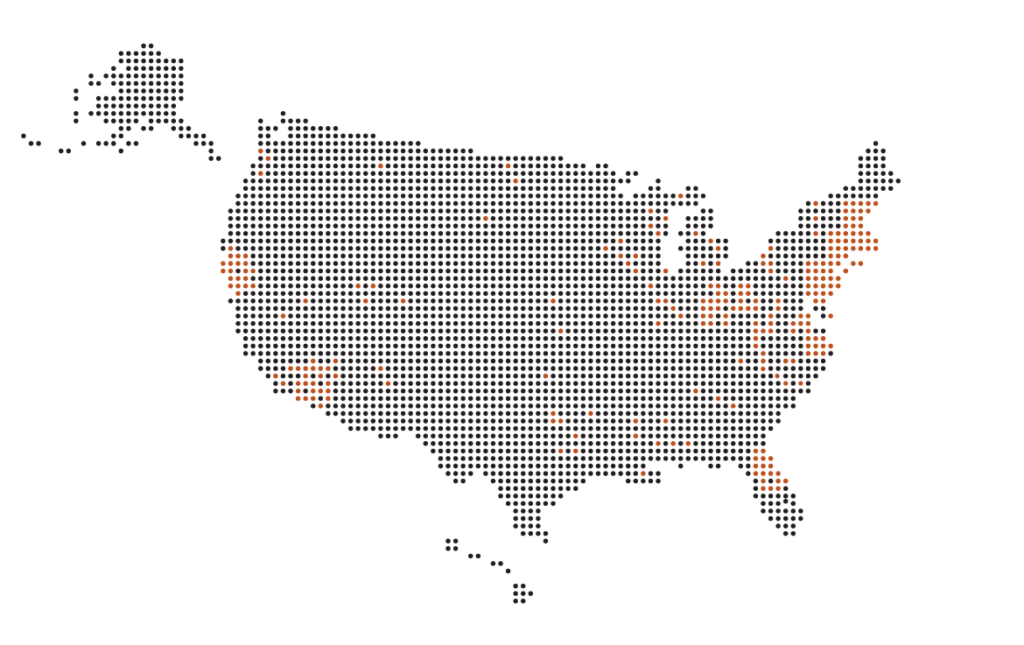
The Free Speech Tracker provides a glimpse of the controversies around the First Amendment sweeping public and private spaces, from college campuses to state capitols.
Since 2017, The Free Speech Project at Georgetown University has served as an independent, nonpartisan initiative working to assess the condition of Free Speech in the United States today — in education, civil society, and government. Through its flagship enterprise, the Free Speech Tracker, the project has worked to examine free speech on a national scale, documenting incidents in which First Amendment values have been challenged or compromised. By assembling and analyzing instances in which expression was suppressed, the project hopes to understand broader national trends around Free Speech today.
The Opportunity Project for Cities
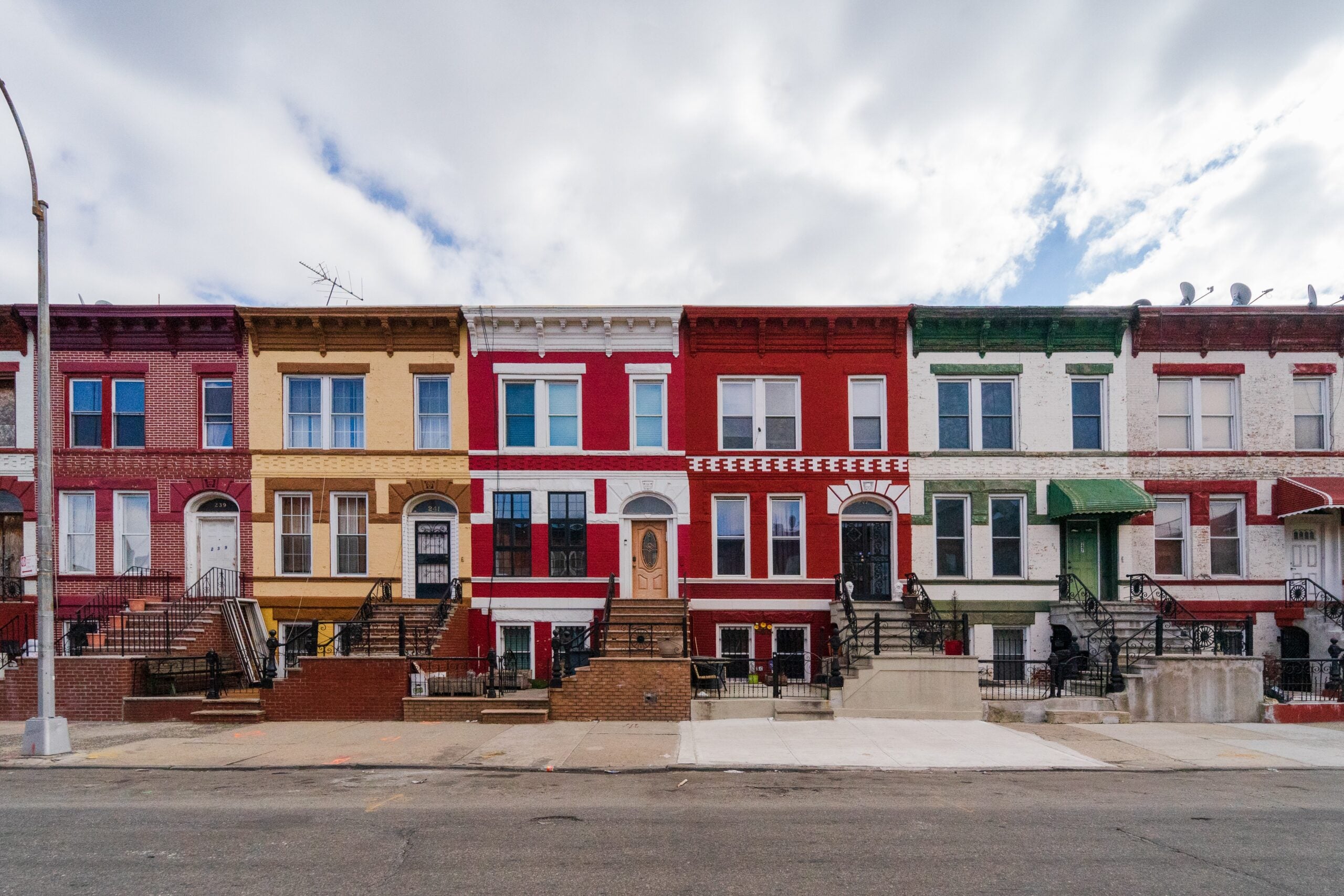 The Beeck Center for Social Impact + Innovation, alongside the Centre for Public Impact, and with support from the John S. and James L. Knight Foundation and Google.org, launched The Opportunity Project for Cities (TOPcities) in March 2021, partnering with cities to assemble teams to jointly to build data-driven digital tools that address major community challenges, starting with access to housing.
The Beeck Center for Social Impact + Innovation, alongside the Centre for Public Impact, and with support from the John S. and James L. Knight Foundation and Google.org, launched The Opportunity Project for Cities (TOPcities) in March 2021, partnering with cities to assemble teams to jointly to build data-driven digital tools that address major community challenges, starting with access to housing.
The Theo-Humanism Project (THP)
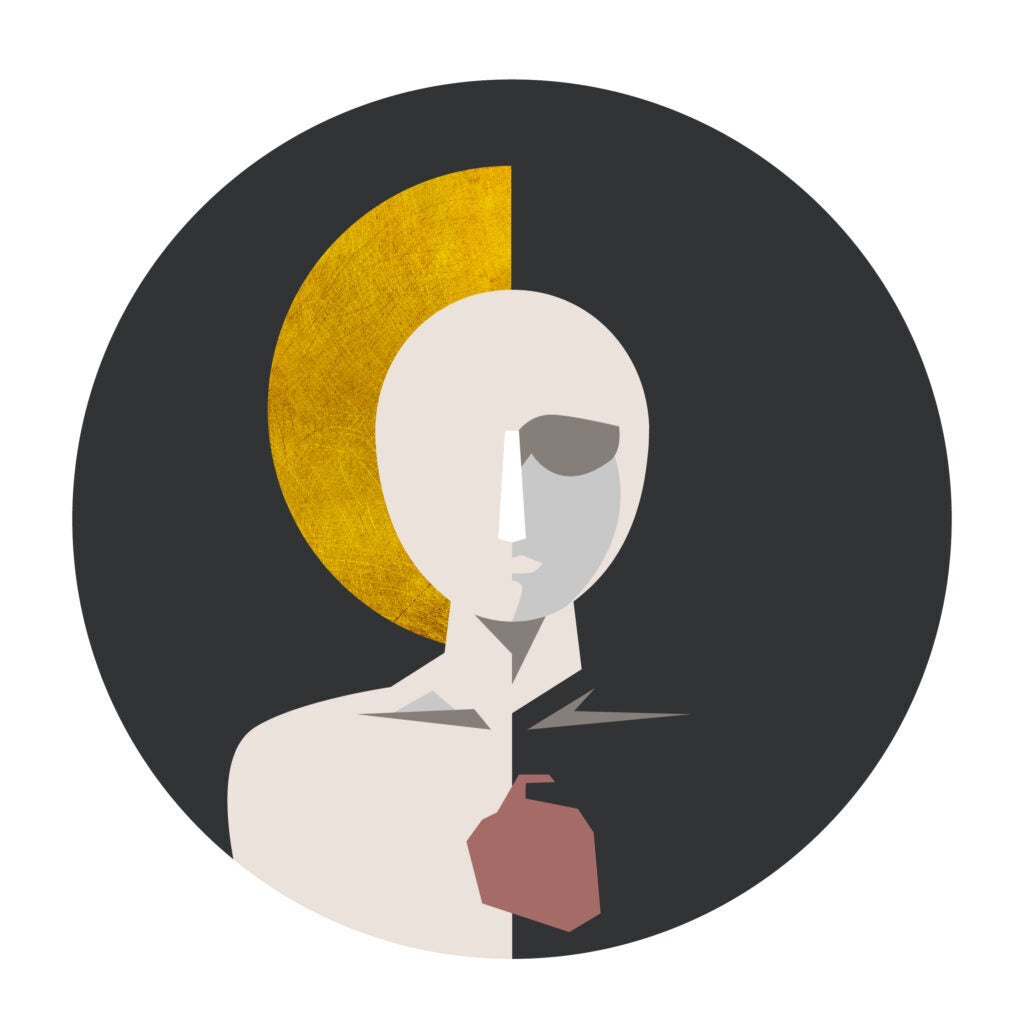 The Theo-Humanism Project (THP) explores connections between the humanities and theological inquiry, drawing on the Jesuit notion of discerning divine movements in all human experience. THP’s varied activities aim to help scholars and students better engage the humanities across cultures—from great works of literature to bioethics—with a view to the human experience as a foundational arena of theological inquiry. THP strives to shed light on ways in which hidden theological insights are at play in all university knowledge pursuits for the greater good.
The Theo-Humanism Project (THP) explores connections between the humanities and theological inquiry, drawing on the Jesuit notion of discerning divine movements in all human experience. THP’s varied activities aim to help scholars and students better engage the humanities across cultures—from great works of literature to bioethics—with a view to the human experience as a foundational arena of theological inquiry. THP strives to shed light on ways in which hidden theological insights are at play in all university knowledge pursuits for the greater good.
THP began in 2014—and continues—as a college course (THEO 192). It now features as a MOOC on the edX platform and has a blog on Facebook for ongoing postings. The project is led by Professor Paul Heck, who partners with scholars at Georgetown and across the nation. Please be in touch with him if you’d like to create a post for the THP blog or have a proposal for a THP activity.
Will Empower
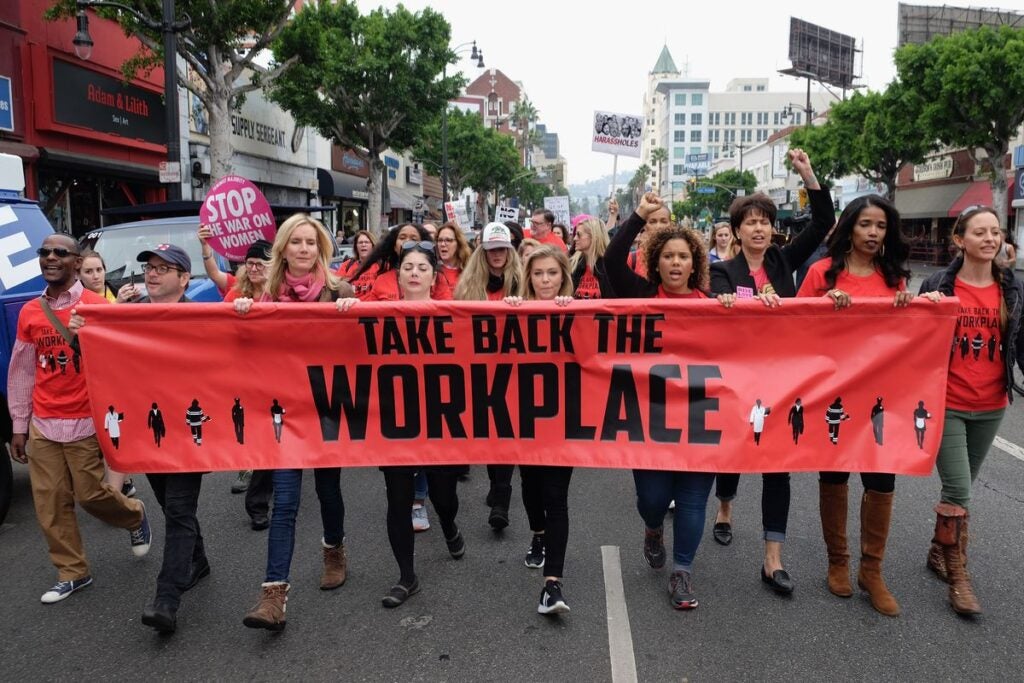
Take Back The Workplace march #MeToo Nov. 12, 2017 | Los Angeles, CA. / Photo: Sarah Morris
WILL Empower is a bold and ambitious initiative to identify, nurture, train, and convene a new generation of women labor leaders. WILL Empower employs a broad, multi-pronged approach that interfaces with women on multiple levels and through interwoven programs.
WILL Empower is a national program, jointly housed at Georgetown University’s Kalmanovitz Initiative for Labor and the Working Poor in Washington, DC and Rutgers University’s Center for Innovation in Worker Organization in the School of Management and Labor Relations in New Jersey.
Worker on Frontlines
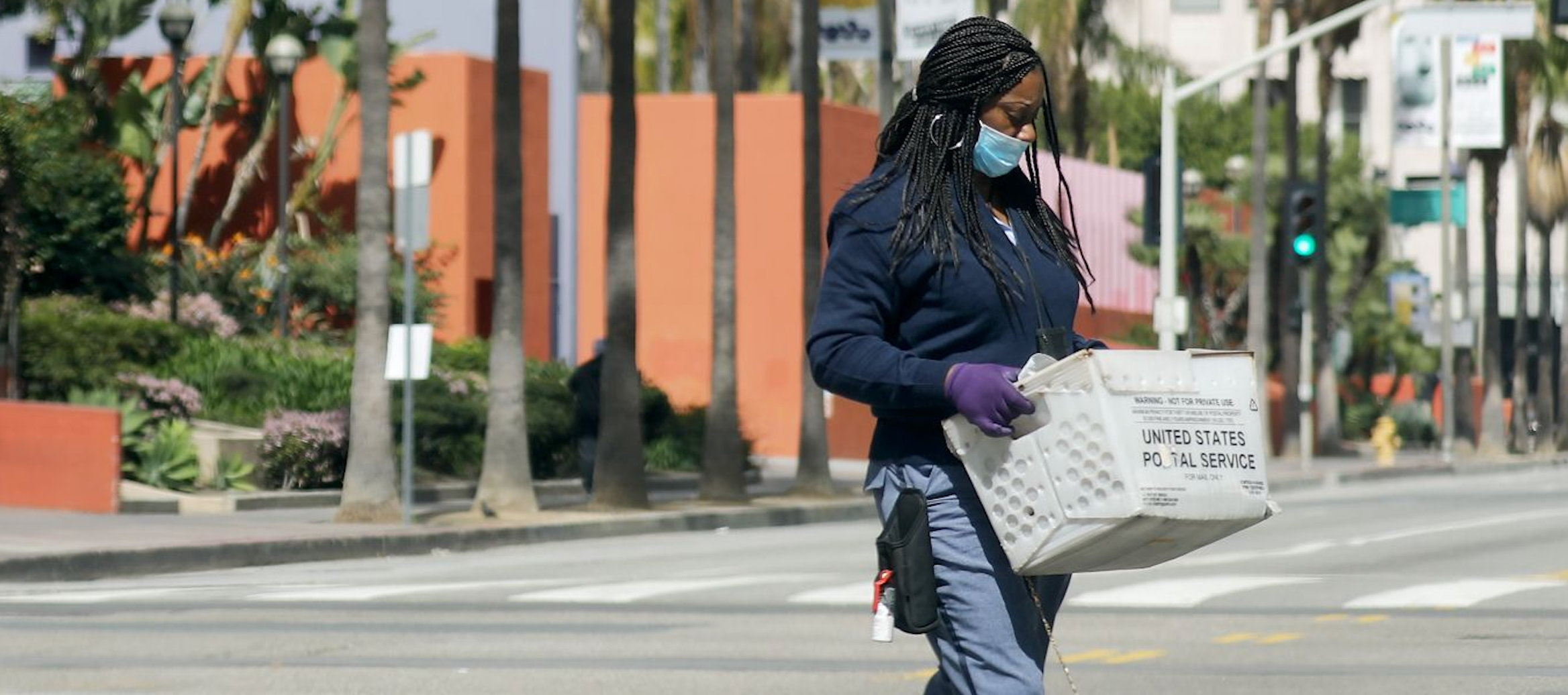 Workers on the Frontlines aims to document the different ways the COVID-19 pandemic has affected the living and working conditions of working people across the United States. This project tells the stories of teachers and postal workers during the COVID-19 pandemic and illustrates the unique experiences of work and workers in a time of great social and economic upheaval. The project’s goal is to help build a more just and equitable society that values workers’ needs and aspirations by lifting up their voices, preserving their stories, and raising awareness about their struggles during the pandemic.
Workers on the Frontlines aims to document the different ways the COVID-19 pandemic has affected the living and working conditions of working people across the United States. This project tells the stories of teachers and postal workers during the COVID-19 pandemic and illustrates the unique experiences of work and workers in a time of great social and economic upheaval. The project’s goal is to help build a more just and equitable society that values workers’ needs and aspirations by lifting up their voices, preserving their stories, and raising awareness about their struggles during the pandemic.
This project is the inaugural undertaking of the Labor History Resource Project (LHRP), a project supported by labor history scholars from around the United States and housed at Georgetown University’s Kalmanovitz Initiative for Labor and the Working Poor. The LHRP believes that workers need a platform that preserves their thoughts and experiences and promotes a fuller appreciation of worker rights and social justice in the United States. In the future, the LHRP hopes to pursue similar projects exploring important topics such as the Postal Strike of 1970 and the history of teacher unionism in the United States from the nineteenth century through the #RedForEd movement in 2018 and 2019.